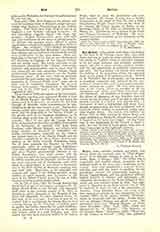

Boyce, JOHN, novelist, lecturer, and priest, well known under the assumed name of “Paul Pepper-grass”, b. in Donegal, Ireland, in 1810; d. in Worcester, Mass., January 2, 1864. His father was a respectable and wealthy citizen, proprietor of the principal hotel in the town and a magistrate of the county. John early manifested a taste for literary pursuits, and with the desire of studying for the priesthood, entered the preparatory seminary at Navan, County Meath, and was graduated with the highest honors in rhetoric and philosophy. He completed his studies at the Royal College of Maynooth and was ordained priest in 1837. For eight years he labored on the Irish mission, but in 1845 he resolved to share the lot of his countrymen in America. From Eastport, Maine, the scene of his first missionary labors, he was transferred, November 14, 1847, to St. John’s Church, Worcester, where he remained until his death. Father Boyce was an eloquent lecturer and gifted writer. His published works are: “Shandy Maguire, or Tricks upon Travellers” (New York, 1848), which was dramatized by “J. Pilgrim”; “The Spwife, or the Queen’s Secret” (Baltimore, 1853); “Mary Lee, or the Yankee in Ireland” (1859), first published serially in the “Metropolitan Magazine” of Baltimore. These novels do not reveal the varied gifts and ripe scholarship of the man, though they illustrate the strong powers of a keen observer, and the humor and pathos of a graceful and instructive writer. Besides these books he contributed to the editorial columns of the Boston “Pilot”, wrote many sketches and criticisms which appeared in print, and a lecture on “The Satisfying Influence of Catholicity on the Intellect and Senses”, delivered before the Catholic Institute in New York in 1851.
EDWARD P. SPILLANE

